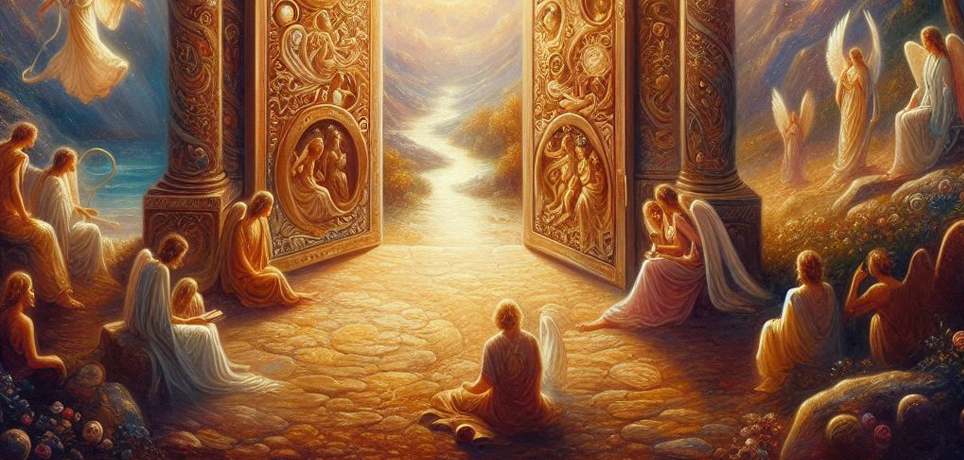
This study guide analyzes the fourth chapter of Neum through the lens of Kabbalah, seeking to identify the mystical themes and spiritual teachings embedded in the text. The guide offers general reflection questions, deeper exploration prompts, and activities to help readers connect Kabbalistic teachings with the wisdom in the Oracle.
Key Kabbalistic Themes in the Text
Divine Wisdom (Chochmah)
Neum emphasizes wisdom and understanding, particularly the wisdom that comes from knowing the Creator, aligning with the Kabbalistic concept of Chochmah (Divine Wisdom), the second Sefirah in the Tree of Life, which is the first vessel to receive the light of the En Sof.
The Nature of Idolatry (Avodah Zarah)
Kabbalah teaches that idolatry is a manifestation of the spiritual distortion that occurs when one worships false or material entities rather than focusing on the Divine. Neum condemns idol worship, a theme aligned with the Kabbalistic understanding of Klipot (the husks or shells that hide the divine light).
Humanity’s Fall and Redemption (Tikkun)
Neum reflects the Kabbalistic idea of Tikkun Olam (the repair of the world), as it speaks about Judah’s fall due to pride, greed, and sin, but also offers hope for redemption through repentance and divine mercy.
The Messiah and the Coming Redemption (Moshiach)
Neum’s prophecy regarding the coming of the Messiah connects with Kabbalistic teachings about the arrival of Moshiach, a time when divine light will reveal itself fully, and humanity will experience spiritual healing and restoration.
The Unveiling of Mysteries (Nistar)
Kabbalah often speaks of hidden truths (Nistar) that are not immediately accessible to ordinary understanding. Neum mentions the sealed vision and the mysteries of creation, which parallels the Kabbalistic notion that deeper spiritual truths are revealed only to those who have purified their hearts and minds.
The Eternal Soul and Divine Mercy (Chesed)
The theme of divine mercy that brings forgiveness and resurrection is a key aspect of the Kabbalistic understanding of Chesed (mercy and kindness), one of the divine attributes that balances justice and brings about spiritual healing and renewal.
General Reflection Questions
1. The Role of Wisdom in Spiritual Growth
- Neum speaks of wisdom as knowing the Creator and feeling His love. In Kabbalistic terms, how is Chochmah (Divine Wisdom) related to one’s ability to understand the deeper mysteries of creation?
- How do you cultivate divine wisdom in your own life?
2. The Problem of Idolatry and Materialism
- Neum condemns idol worship and materialism. In Kabbalah, Klipot (the shells or husks) represent the spiritual blockages caused by focusing on false idols. What are the “idols” in your life that might obscure the divine light?
- How can you begin to purify your consciousness and free yourself from these distractions?
3. Understanding the Role of the Messiah
- Neum prophesies the coming of the Messiah but also warns that Judah will not recognize Him. How does Kabbalah view the Moshiach and the process of redemption?
- In what ways might you prepare yourself to recognize the Messiah (Jesus Christ) in your own life?
4. The Fall of Judah and the Call for Tikkun
- Judah is compared to Sodom due to its greed and lack of charity. Kabbalah teaches that the fall of humanity leads to spiritual fragmentation. How does this reflect the need for Tikkun (spiritual repair)?
- What steps can you take in your own life to contribute to Tikkun Olam?
5. Divine Mercy and the Resurrection of the Soul
- Neum speaks of divine mercy leading to resurrection and the opening of graves. How does this idea reflect the Kabbalistic understanding of Chesed and the ultimate healing of the soul?
- How can you practice mercy and forgiveness to experience spiritual renewal?